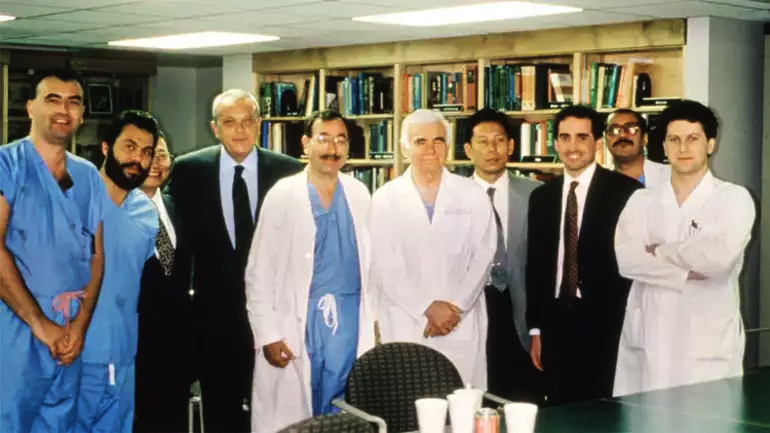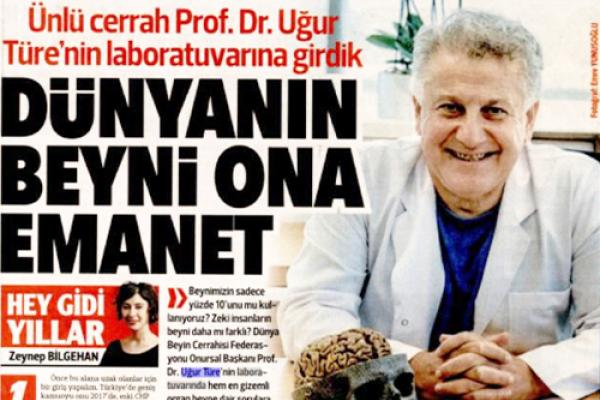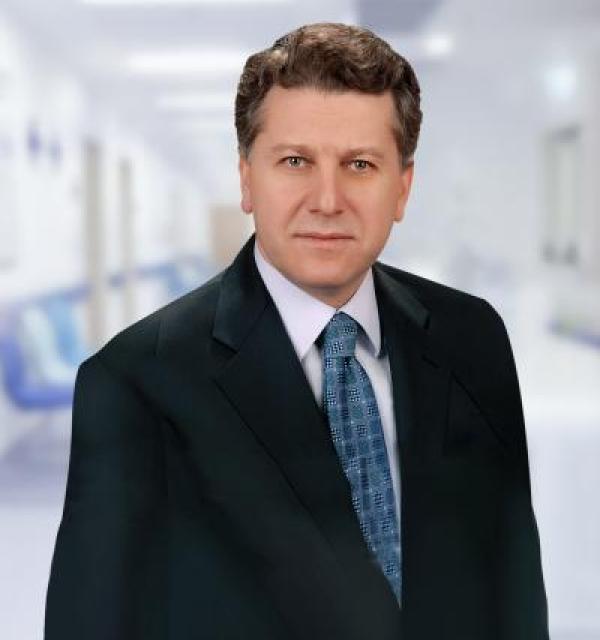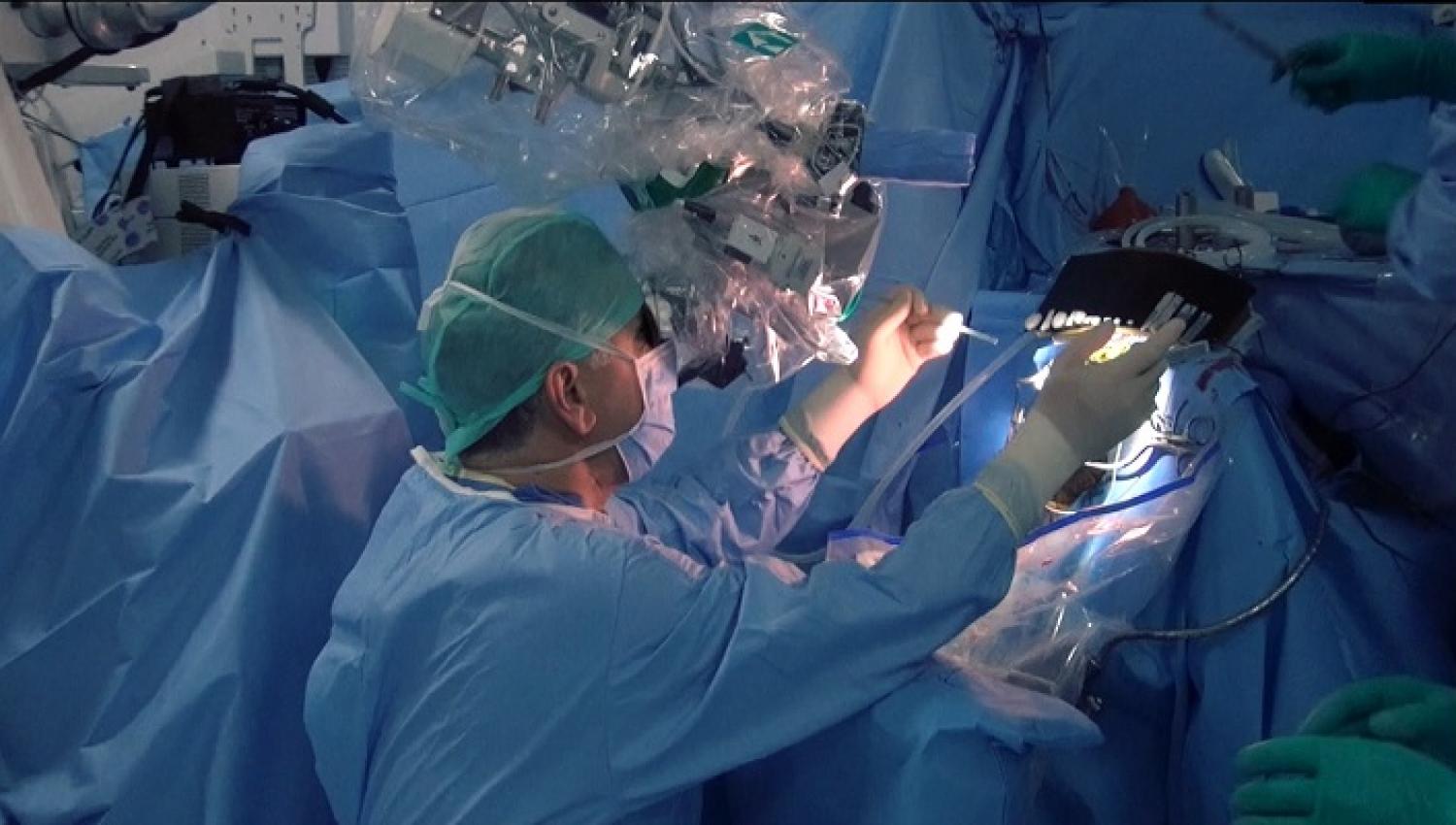The brain of the world is entrusted to him... Prof. Dr. Uğur Türe.
"Are we only using 10% of our brains? Is the brain of intelligent people different? The Honorary President of the World Federation of Neurosurgical Societies and Brain and Neurosurgery Specialist at Yeditepe University Hospitals, Prof. Dr. Uğur Türe, explored questions about the most mysterious organ, the brain, in his laboratory, and also looked through old albums..."
Prof. Dr. Uğur Türe, who is known in the medical world for his surgical techniques in the most challenging region of the brain, the thalamus, says, "We are not completely in control of what happens in the brain. But in the last 20 years, research on the white matter of the brain, i.e., its deep structures, has advanced significantly. Now, we are getting to know the inside of the brain better."
Let's start with an introduction for those who are not familiar with this field. In 2017, the wider public in Turkey came to know him through the following news during the illness of former CHP (Republican People's Party) Chairman Deniz Baykal: "President Erdoğan instructed the world-renowned brain surgeon Prof. Dr. Uğur Türe to come to Ankara for the treatment of Baykal, who had a clot in his brain due to a blocked artery." Prof. Dr. Uğur Türe, both the founder and head of the Department of Brain and Neurosurgery at Yeditepe University, as well as the Honorary President of the World Federation of Neurosurgical Societies, is the mentor and student who has been inseparable from the legendary figure Prof. Dr. Gazi Yaşargil for 33 years, responsible for training hundreds of scientists and regarded as the founder of modern brain and neurosurgery worldwide. Like his mentor, he also refrains from interviews, so we had the opportunity to enter his laboratory on the occasion of the "Microsurgery Congress" he is hosting in Istanbul these days.
"I used to be afraid of hospitals."
Prof. Dr. Uğur Türe's story begins in 1963 in the town of Fatsa in Ordu, Turkey. He was born as the youngest of four children to a hardworking father who was also an elementary school teacher and a homemaker mother. He was a diligent and versatile child who enjoyed painting and playing the violin. During this period, his interest in medicine was both close and distant. Let's hear it from him: "Our house was right next to Fatsa State Hospital. In Fatsa, back then, there would be either a traffic accident or someone getting shot almost every night! All the kids in the neighborhood would rush to the hospital entrance whenever an ambulance arrived, curious to know what had happened. The hospital's only general surgeon was Uncle Osman (Memecan), and he would perform emergency surgeries every evening. I used to be very afraid of hospitals; becoming a doctor was never on my mind, but we all admired Uncle Osman. He had a significant influence on me."
"Life-Changing Concert"
After completing primary and middle school in Fatsa, he continued his education at Ankara Deneme High School. Later, he enrolled in Hacettepe Medical School, which was the highest-scoring school of the time. However, he had another passion in his heart: playing the violin. Türe explains: "I had learned to play the violin in Fatsa with my own means. In Ankara, in 1979, I attended a Suna Kan concert conducted by Gürer Aykal, and my life changed. It was the first time I had listened to Classical Western music here, and I was captivated. On the day I got accepted into university, I started taking violin lessons. For the first two years, I focused more on playing the violin than on my studies. I was about to quit medicine and pursue music full-time when my father convinced me otherwise. While watching a Suna Kan concert on TRT 2, he asked me, 'Can you play like her in the future?' I replied, 'How can I play like her? She started at the age of five and graduated from the Paris Conservatory. I can't play like her in the future.' Then he asked, 'Why are you leaving medical school, then?' So, I continued with medicine."
"An Organ Filled with Mysteries"
He specialized in the field of neurological sciences, explaining his reason by saying, "The brain is a sacred organ filled with mysteries. Its anatomy is astonishing, and how it works is still not fully understood." When he couldn't pass the exam for psychiatry as his first choice for specialization, he accidentally entered the neurosurgery department at Şişli Etfal Hospital. The rest of his life was shaped not by fate but by clear decisions: "Since I was going to become a brain surgeon, I needed a mentor. The greatest mentor was Yaşargil... He was a legend. Nobody had seen him; if they did, we heard about it from those who had. In 1990, I was accepted into his laboratory in Zurich. We were both observing surgeries and receiving basic microsurgery training. It was thanks to Rosmarie Frick, the head of the laboratory, that I caught Yaşargil's attention; otherwise, I would have been one of the three thousand students who had come to him. When I expressed my interest in anatomy, my fate changed. I had gone for a six-month period. Then other projects came up. The more I worked, the more Yaşargil opened doors for me. We have been together for 33 years. If I am doing anything in brain surgery today, it is entirely thanks to him."
"Surgeons Don't Become Virtuosos"
While dedicating himself professionally to medicine, he also had a "mentor" in the form of the violin: "The order and discipline in playing the violin also became my mentor. The education system established by musicians doesn't exist in medicine. That's why musicians produce virtuosos, but surgeons don't. The first problem is that we start too late. Even if violinists start at the age of 25 or 26, they won't become virtuosos. The discipline of playing the violin had a significant contribution to my progress in brain surgery. Secondly, violinists cannot perform in a concert without practicing. We go into surgery! That's why working in the laboratory is very important." After Zurich, Türe worked in the United States for two years. He returned to Turkey in 1997. In 2005, he established the Department of Neurosurgery at Yeditepe University Faculty of Medicine. He has performed more than seven thousand brain surgeries to date. In 2021, with the surgical techniques he developed for the most challenging area of the brain, the 'thalamus,' he made the cover of the prestigious brain surgery journal, the Journal of Neurosurgery.

"Working with Yaşargil"
Since 2014, Prof. Uğur Türe has been working under the same roof as his mentor, Prof. Gazi Yaşargil. What is it like to work with an idol in the field of medicine? Uğur Hoca responds, "I grew up in the school of Yaşargil." He continues, "One day, I told my teacher about a conversation that took place years ago between my father and me. I said that after listening to Suna Kan, I realized I couldn't play like her, so I decided to pursue medicine. He opened his eyes and said, 'So, you thought you could do what I do just by watching me for the first time?' Nothing escapes my teacher (laughs). At least I had hope, so I gathered myself. The last time I worked with my teacher, it was a surgery that lasted for more than 10 hours, one of the most difficult surgeries in the world. He was over 80 years old. At that age, most people can't stand for 10 hours, and it's unbearable... That's Yaşargil for you; determination, hard work, and respect for his profession."
"The Brain Plays Games with You"
The most challenging aspect of working with the brain, according to the answer given, is, "You can't predict with 100% certainty how it will behave; it plays games with you. We are not yet fully in control of what happens in the brain." As for developments, it continues, "Research on the white matter of the brain, i.e., its deep structures, has advanced in the last 20 years. The publications we started in 1997 were pioneering in this regard. With the advancement of MRI technology, we are getting to know the inside of the brain much better. Neurosciences are making significant progress at the diagnostic level."
"I Don't Listen to Music While Performing Surgery"
"After my last concert in 1994, I closed the case of my violin. I haven't touched it for years out of respect, but I am a good music listener. I attend concerts, listen in the car. I just don't listen to music in the operating room because if someone is listening to music while performing surgery, they are either not really listening to the music or not really performing the surgery."
"The Forefather of Surgeons Is a Resident of Kadıköy"
Prof. Uğur Türe is currently preparing to host colleagues from around the world at the 'Microsurgery and Anatomy Congress.' There is a reason for holding this gathering in Kadıköy: "The founder of anatomy is a man from Kadıköy. His name is Herophilus of Chalcedon (Kadıköylü). He lived between 335-280 BC. Before Kadıköy, he traveled from Athens to Kos and then to the center of science and art, Alexandria. He was the first in history to receive permission to study human anatomy. Our forefather is actually not Hippocrates, but the forefather of surgeons, Herophilus. He dedicated 30 years to studying anatomy. After him, no one could touch the human body until the Renaissance. Scientists after the Common Era referenced him in their writings. In honor of Kadıköylü Herophilus, the founder of anatomy, we are holding the congress here 2400 years after his time."
Turkish Doctors Are Very Good in Their Field
“Türk hekimleri tıp alanında en üst düzeyde, bunu iddia ediyorum. Her alanda çok iyi meslektaşlar ve çok iyi imkanlara sahip hastaneler var. Şimdiki Tıp Fakültesi öğrencileri bizden de iyiler. Çünkü bizim zamanımızda kitap yoktu, internet yoktu, derste hocanın ağzından çıkanı anladıysan anladın. Şimdi çocuk soru soruyor, konuya hâkim. Hal böyleyken doktorların bu kadar ayakların altına alınmasını kınıyorum. Buna karşı önlem alınmazsa bize bakacak doktor bulamayacağız.”
"A 24-Hour Open Anatomy Laboratory"
"My biggest dream was to establish a 24-hour open anatomy laboratory, and thankfully, this dream has come true. The biggest challenge here is finding cadaver brains. More than 100 colleagues from Turkey and around the world have had the opportunity to work here."
"4 Brain Myths That Are Misconceptions"
"Do we only use 10% of our brain?"
What a silly idea, right? (laughs) If you know the percentage, then you already understand the brain! The brain is interconnected, and every part works simultaneously. In the past, people thought there were memory centers, but there's no single center like that. The entire brain works together. Intelligence and the human spirit, everything is here...
"Do smarter people have more folded brains?"
This has been a subject of much pondering in the last century. Even poor Einstein's brain was a subject of curiosity; they dissected it, tried to examine the folds. Now, there's no need for that; we can see it through MRI, and it's not really related to shape. The connections between nerves are crucial. It's a chemical process, but we're not at the level where we can say, "There are so many connections in a musician's brain, this many in an artist's, and there's a difference between a mathematician and a linguist." It's not that simple.
"Can we take good care of our brains?"
There's no magic pill; it depends on your luck. Genetic factors like a family history of diabetes, high blood pressure, or high cholesterol can be issues. They affect the brain just like any other organ. You can't eliminate genetic predisposition, but you should eat and drink accordingly. Be attentive.
"Is being very intelligent enough? Can the brain be improved?"
Of course! You need to exercise it just like a muscle; you need to read. There's no such thing as "I'm very smart" - average intelligence is sufficient. After that, it's all about hard work. Depending on your profession, you'll work and research. You can't possibly know everything; you need to be open to learning from others. You'll communicate. You'll be interested in other things too, like art, history, and culture.
”


